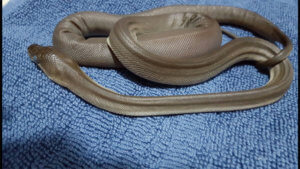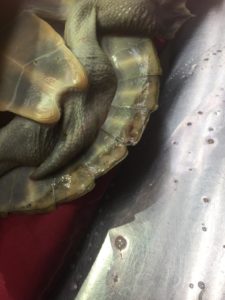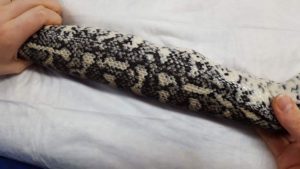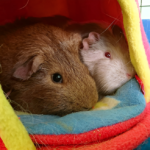Hello everyone! As many of you with reptilian pets would know, they can be challenging to read sometimes! Signs of illness can be very difficult to spot – because often there aren’t any! Reptiles are very adept at hiding any evidence that they are sick, often until they are severely compromised and are so sick that they can’t afford to expend the energy hiding it anymore. In these cases it can be much harder, or sometimes impossible to save an animal’s life. This is why it is so important that reptile owners are aware of the signs of illness to look out for, and for reptiles to come in at least yearly for a general health exam.
One of the first steps in knowing what is abnormal is first knowing what is normal. Some reptiles are very active whereas some spend most of their day sitting still.
Have you researched what is normal for your reptile? Have you watched documentaries or gone to see the same or similar species at a zoo or in the wild?
Knowing what’s normal helps us to be more likely to recognise the subtle signs of illness before it’s too late. Regular veterinary exams allow us to assess your pet and look for any subtle signs of health conditions that need addressing, it also allows us to keep you up to date with the latest recommendations in disease testing, nutrition and other husbandry factors.
Feel free to book your scaled friend in for a health check today by calling the clinic on 07 3217 3533.
Monitoring your reptile at home
It is important that all pet owners regularly monitor their pets, but it is particularly important for exotic pets, as these guys often are better at hiding things from us. This is one of the reasons we suggest people weigh their pet regularly. Buy a set of scales that measures in grams, and have this as your ‘reptile scale’. It is important not to use your regular kitchen scales to weigh your reptile on due to the risk of spreading bacteria such as Salmonella to your food. Monitoring your pet’s weight weekly or monthly can help identify disease. Growing reptiles should be slowly and steadily gaining weight. Adults should be maintaining their weight. A sudden drop in weight, or a steady decline can both be concerning. It is also possible that a sudden weight gain can be a sign of something not being quite right. If you monitor your pet’s weight you can call us with any concerns or queries and hopefully we can address any illness before it advances too far.
Clinical signs of disease:
- Sudden weight loss or gain
- Steady weight loss
- Lameness on one or more limb
- Body swellings
- Bubbles from the nose/mouth
- Discharge from the eyes, ears, nose or mouth
- A change in activity level eg sleeping all day or seeming agitated, change in swimming ability for turtles
- A change in the breathing pattern eg faster or slower, or with more effort
- Redness, swelling or other changes to the skin, retained shed on the skin
- A change in the faeces eg an absence or diarrhoea
- A change in appetite eg not eating, changed food preferences
- A change in posture or muscle tone eg slumped down or not standing up as tall as they used to
These are only a few of the possible symptoms you may see at home that are cause for concern. If you notice any of the above call the clinic to get advice on coming in for a consultation. An annual health check is a great idea to ensure your reptile is healthy and behaving normally. During an annual health check the veterinarian will talk to you about your reptile, examine them externally, look in their mouth and check their faeces under the microscope. Blood tests can also be run to check their general health, because reptiles truly are masters of hiding their signs of illness!
At the end of the day you are the one who knows your pet best – if you are worried something is wrong it is worthwhile getting it addressed. If you have any concerns for your pet please call us today on 07 3217 3533.

This olive python has several changes from normal. His eyes are opaque, in this case it’s because he’s due to shed soon. He’s underweight, note how his spine is quite prominent. And finally the last half of his body is very swollen.

Areas of shell discolouration can be a cause for concern in turtles. This caudal edge of this turtle’s shell has been damaged and is now becoming necrotic – this required surgical debridement to remove the dead tissue before it caused a significant systemic infection.

The sudden appearance of swellings in the body can be cause for concern. This wild carpet python had eaten two plastic eggs from a chicken coop that required removal.

Even if your reptile appears clinically normal a general health exam at least annually is recommended.
Updated November 2021



